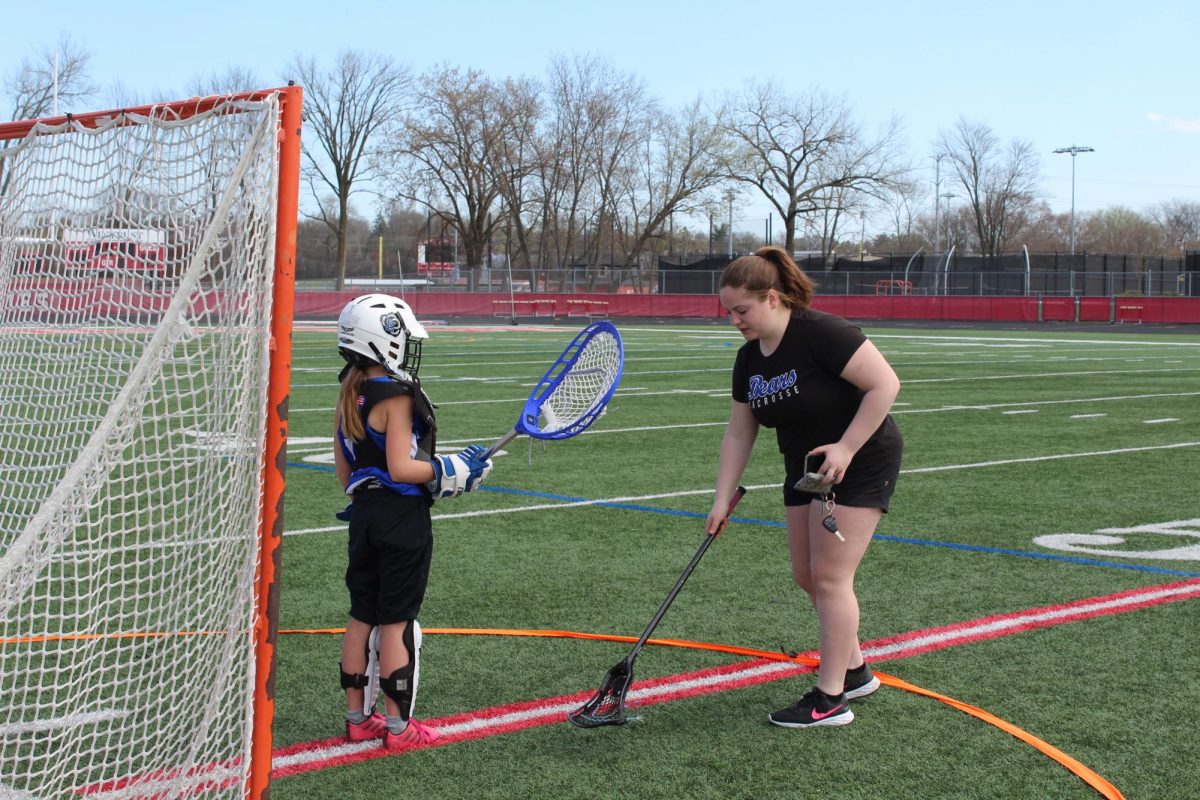In order for athletes to become the best versions of themselves, they need inspiration and instruction—vital skills that a coach can provide.
Multiple students at LZHS, after gaining skill in their own sports, have turned to coaching in order to teach and share their passion to the next generation. Alyssa Karstenson, junior and lacrosse coach, is one of these students. Karstenson coaches girls (ages 5-12) in lacrosse for the Lake Zurich Lacrosse Club throughout the year.
“I like being able to help [kids] not only learn lacrosse, but also have fun while doing it,” Karstenson said. “I also like helping new lacrosse players learn to love the sport as I had learned.”
Not only do coaches benefit young athletes with their guidance, they can also learn more about their sports by coaching. Sam Cannon, senior and taekwondo coach, says coaching enables him to have a different view of taekwondo.
“[Coaching] helps you because you [get to practice] more. But, [coaching] also helps you understand [the sport] more because you have to break it down into smaller bits of information. You’re able to focus on the details because you need to communicate the details,” Cannon said.
Both Cannon and Karstenson are paid for their coaching services; however, Cannon says that the impact he has on athletes is more valuable than the money he receives for coaching.
“My favorite part of coaching is seeing the students excel over the years, grow, get higher belts, and change as people,” Cannon said. “[I like] seeing [my] influence on that.”
Despite the positive impacts that coaches have on players, there are some aspects that make coaching difficult and not always fun according to Cannon. Cannon says the most difficult parts of his job include finding balance in coaching styles as well as dealing with unwilling athletes.
“I have to make the students care about their abilities and people around them. When they don’t it’s hard to get them to,” Cannon said. “That’s when the bigger problems arise, when students realize what they’re doing and don’t care.”
Another possible drawback to coaching, according to Karstenson, is the personal sacrifices coaches make in order to help their students.
“I would only recommend coaching to certain people who have patience to help others and realize what [they’re] feeling has to be on the backburner [while they coach]. Coaching is for the people who might need that distraction where they can’t focus on themselves,” Karstenson said.
Aside from student coaches’ perspectives, Ron Planz, head varsity football coach and junior varsity tennis coach, says that coaching is beneficial to athletes, no matter their age.
“I think [coaching] is awesome,” Planz said. “It’s one thing to learn something and be told how to do something, but then to turn around and then try and teach somebody else really helps deepen your understanding of whatever it is.”
Furthermore, Planz says that this opportunity comes with extended responsibility that students may not otherwise experience.
“When you become a coach, you are not only responsible for your own actions, you are also responsible for the entire team,” Planz said. “That’s a big adjustment for anyone.”
As students adjust and develop as coaches, the players they coach also develop. Student coaches such as Karstenson and Cannon have the ability to leave a lasting legacy on their players.
“The last two years, my team’s gone undefeated, but it’s not just that,” Karstenson said. “They went from not trusting each other with passes to trusting each other and making the passes. So seeing not only their success in winning the games, but also their success in changing how they’re winning the games is nice.”


